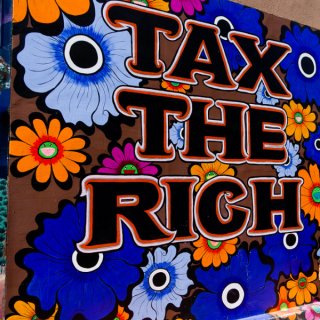For This Next One, I Direct Your Attention Down South
One man's overthrow of a democratically elected government is another man's fodder for a TED (Technology, Entertainment, Design) talk. Key in white and Western colonial projects is a sovereign nation all too willing to play host. Since 2009, Honduras has been that nation. Its story is a tragedy that even Shakespeare would have deemed as too emo, the bad old days of imperial neoliberalism in Latin America all over again. Honduras's presidential elections are Saturday, and its people, and the Libre party, no matter what deity, algorithm or currency system you happen to worship, need you to pray for them.
On June 28, 2009, six months after Obama's inauguration and two months after his supposed apology tour, President Manuel Zelaya was woken up in his pajamas by the military and forcibly removed from the country. Every country in the world except the United States and Israel called it for what it was, a military coup, which conveniently allowed the US to continue to provide. In the sham elections that followed, the Dynamic Duo were the only countries to recognize the new government. For the right, even this wasn't enough. Monseigneur Wittward Romney scolded Obama on the campaign trail, saying “When Honduras wanted to toss out their pro-Marxist president, our president stood with him.”
As if. As f--king if. Manuel Zelaya was no Hugo Chavez, not even a Rafael Correa. The depths of Zelaya's socialism was to the minimum wage, float the question of closing the massive US military base, and call for a constituent assembly to rewrite a constitution drawn up by oligarchs. He was a member of the political establishment who had the unfortunate development of growing a conscience in one of the US's more reliable client states.
In the time since, the poorest country in Central America has entered full-blown dystopian mode. Remittances from the US make up one quarter of Honduras's GDP; Hondurans have made up the fastest growing group of undocumented immigrants. State-sanctioned murder of journalists and human rights activists has become common. Drug trafficking has become embedded into the political structure. And the only way out, the global economic establishment would have you believe, is charter cities.
Charter cities are exactly what they sound like, the principles of charter schools applied to an entire city. A fully privatized city. An economic development strategy that is literally the product of a TED talk (see: August 5, 2009), and a very real possibility for Honduras. The result would be so harrowing that even the guy whose TED talk it is, Paul Romer, withdrew his support for the plan after seeing the details. Luckily, the Honduran Supreme Court has held up the project, but if the ruling party wins the election, it may still yet see the light of day.
And yet, through it all, there is hope, hope to be found in the resiliency of the Honduran people. Despite the crack downs and death squads, resistance has continued, led in many ways by Chris Christie and House of Cards' favorite punching bag, and also by and large the most bad-ass groups of people on the planet, teachers unions. On Saturday, the resistance has its chance for apotheosis. The upstart Libre party, fielding Xiomara Castro, the wife of Manuel Zelaya, as its candidate for president, is now polling dead even with the conservative National Party, whose candidate's main campaign promise is to fully militarize the country's police.
The even polling does not give me reasons for optimism though. The close tally provides enough cover for additional election shenanigans by the ruling party. From Zimbabwe to Malaysia to Mexico, the past year has provided numerous examples of opposing coalitions that in terms of rhetoric and organization, have embarrassed the pants off the ruling party only to find the ruling party, surprise surprise, eke out a narrow victory. And this is to say nothing of the unrest that will inevitably follow, no matter the results. For much of the world, democracy is a violent process, and its inherent validity is not always seen as a given.
Far too often, it is tempting to write off the suffering in the developed world as innate. These poor dark-skinned people are killing each other just because. That same tendency leads us to believe that we in the enlightened West are the only ones to provide solutions, and that same tendency tends to cause more suffering in those same areas. The White Man's Burden is at its core a liberal sentiment. The Washington Consensus has wreaked as much havoc on Latin America as the United Fruit Company.
Though it's anyone's guess as to what future declassified CIA documents will reveal, the coup in Honduras at the very least happened with the United States' tacit support. Ever since the Monroe Doctrine, the US has positioned itself as the hegemon in the Western Hemisphere, and it has manipulated and controlled the area to serve its own interests. Initially, it was about fruit companies (seriously, we've overthrown governments and annexed nations for nothing more than bananas and pineapples). Then, it was about the Cold War and stopping the spread of communism. Today, it's about the drug war, which in many parts of Latin America is indeed a literal war.
The dismissal of suffering in Latin America, then is especially insidious. But I do not come here to prescribe courses of action, because ultimately this is not about us. What is especially inspiring about the resistance in Honduras is the way it has taken shape solely through the will of its own people. It is truly a new day in Latin America. The Bolivarian revolution is real. On Saturday, the people of Honduras have a chance to cast what is often too facilely relegated to the pages of history into its dustbin, but either way, the resistance shall continue. They need you in their thoughts, but they don't need a savior, much less a TED talk.
Address all hate mail to petermgunn@gmail.com



